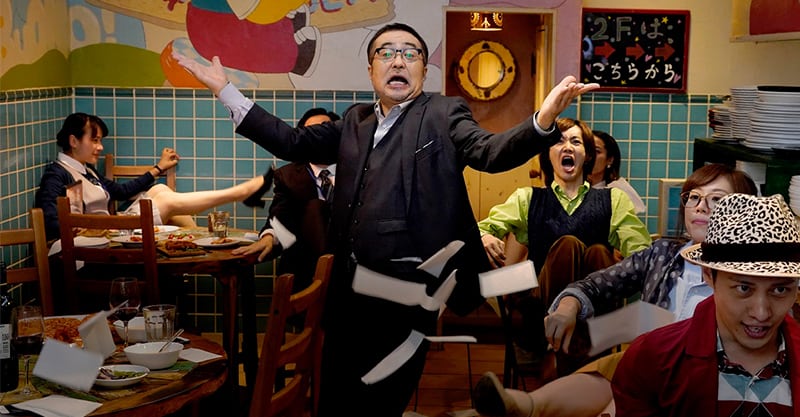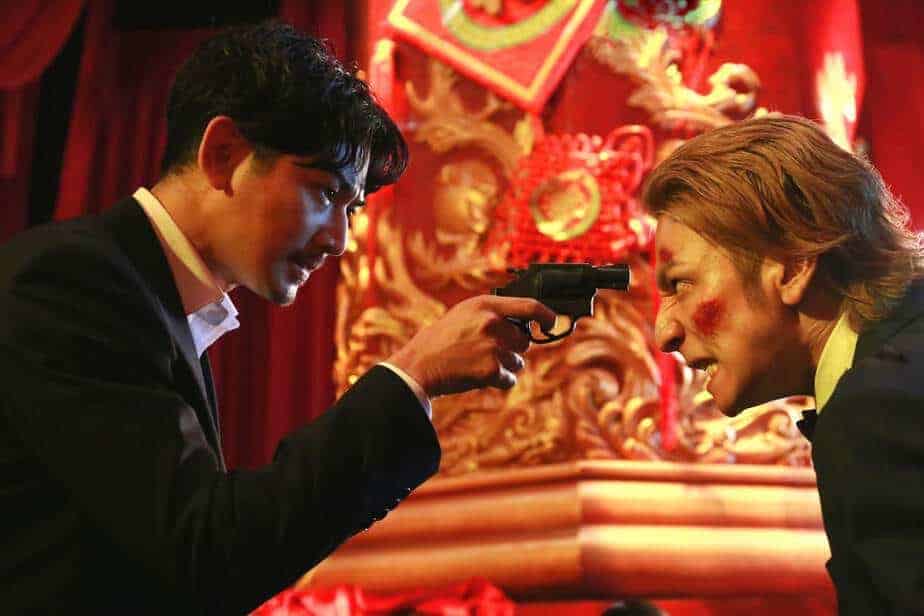108 is a symbolic number. In Buddhism, it stands for the 108 pearls (Malas) on the prayer beads, the names of the gods, and also the 108 earthly desires that hold off humans from enlightment. When screenwriter Goro Kaiba discovers an online blog about his wife's affair, he also stumbles across this number. 108 is the amount of virtual “thumbs up” that she got for her cheating. As the couple decides to take off a final time from each other before they divorce, Goro is out for blowing all his money on 108 hookers to make sure that there is no fortune left for his future ex-wife.
108: Revenge and Adventure of Goro Kaiba is screening at Camera Japan

The outline of the most recent Suzuki Matsuo (“Welcome to the Quiet Room” 2007) film is bizarre, funny, and just awesome. The prolific theatre director, actor, screenwriter and novelist – in short: multitalented – founded the theatre troupe “Otona Keikaku” in 1988 and won several prizes. In 2008, his screenplay for “Tokyo Tower” earned him the Japan Academy Prize. Known for his bizarre taste of humor, Matsuo often plays the lead in his own films. This also applies to “108: Revenge and Adventure of Goro Kiba”, where he portrays a cynical play writer stressed and bored by his profession.
With a healthy portion of dark humor, the movie works as a psychogram of a middle-aged man caught in-between the feelings of love and hate. Matsuo perfectly plays (himself?) his role and hands out many side cuts to the Japanese art scene. Bittersweet and sometimes over-the-top, using musical and “pinku”-film elements, the sex comedy has its own charm.
Miho Nakayama (“Love Letter” 1995) is casted as the cheating wife but is outperformed by Matsuo, who takes all the credits for acting in this one. In the course of the film, the story turns more and more into the extreme. Gory hate fantasies and wild orgies steer away from the promising start, which last for about 30 minutes until it starts to lose appeal. Technically, “108” is able to keep its quality throughout the whole runtime. The editing and the cinematography by Hironori Yamasaki (“My Dad Is A Heel Wrestler” 2018) are on point. During the middle, the script gets a bit repetitive since Goro is busy with hook-ups and it seems that the story dissolves into an endless stream of sex scenes and finding new ways to spent money. The sex scenes are not only exhausting for Goro but also for the audience.
There is a twist at the end that changes the grotesque mood of the film. Suddenly, the movie starts to take itself seriously and develops a melodramatic cheesiness, of which I am not sure if it's meant severely or not. This leaves uncertainty and makes it difficult to appreciate the creativity that Matsuo put into this project.
“108” mixes the modern topic of social media with the life crisis of the main protagonist. The overall amount of naked skin and goofy scenes involved hinder the story to unfold its potential. Merely the first third, which resembles a darker version of a Koki Mitani film (“Magic Hour” 2008), can easily outdo 80% of Japanese “comedy features”. With the interesting setting of a behind-the-scenes theatre production, it starts as an authentic insight and further processes into a human drama not sure where to go.















